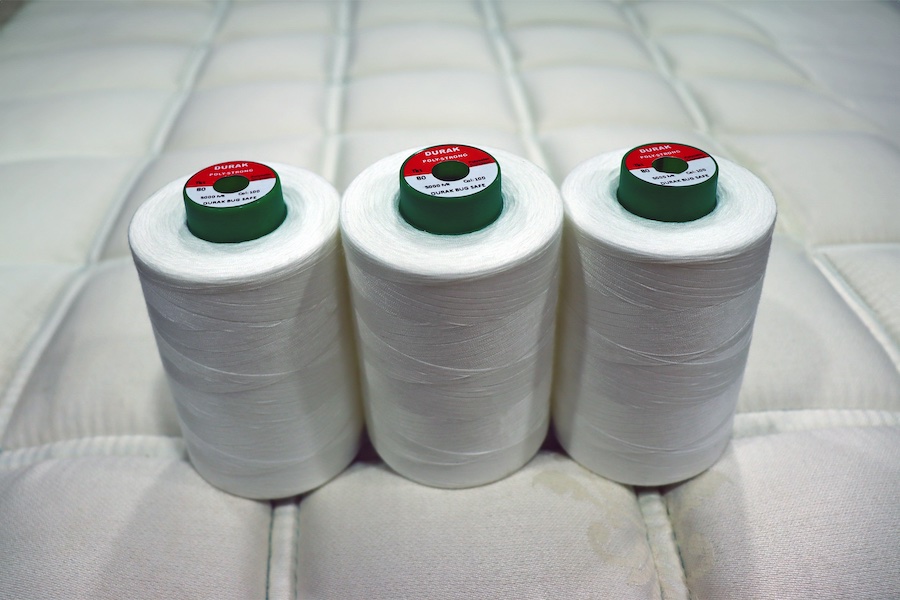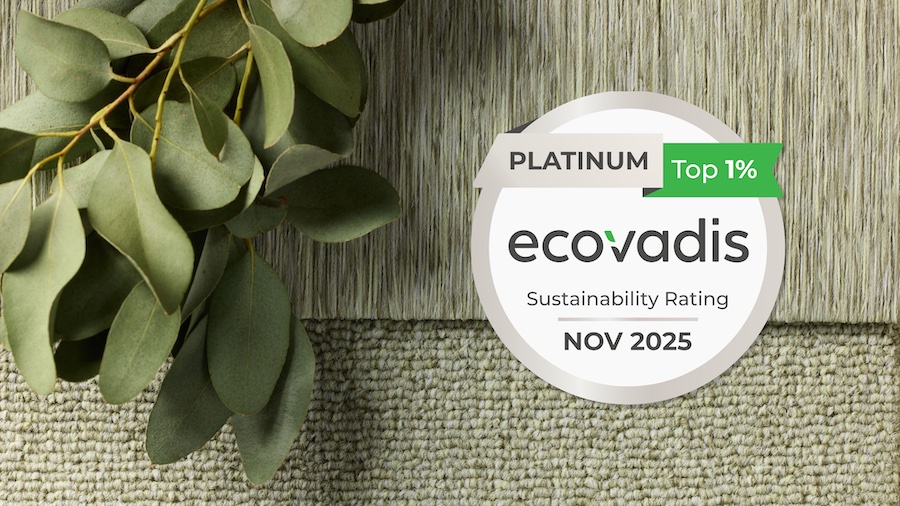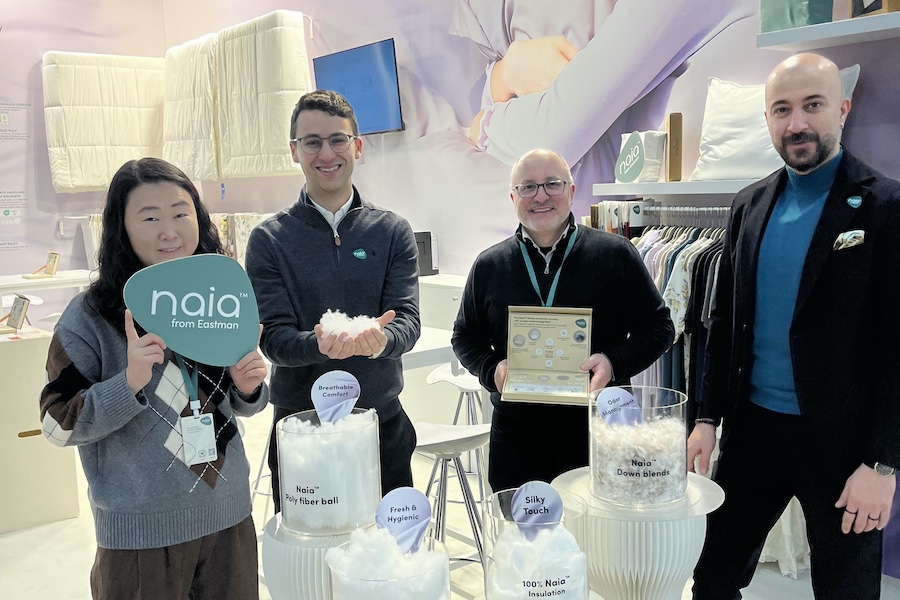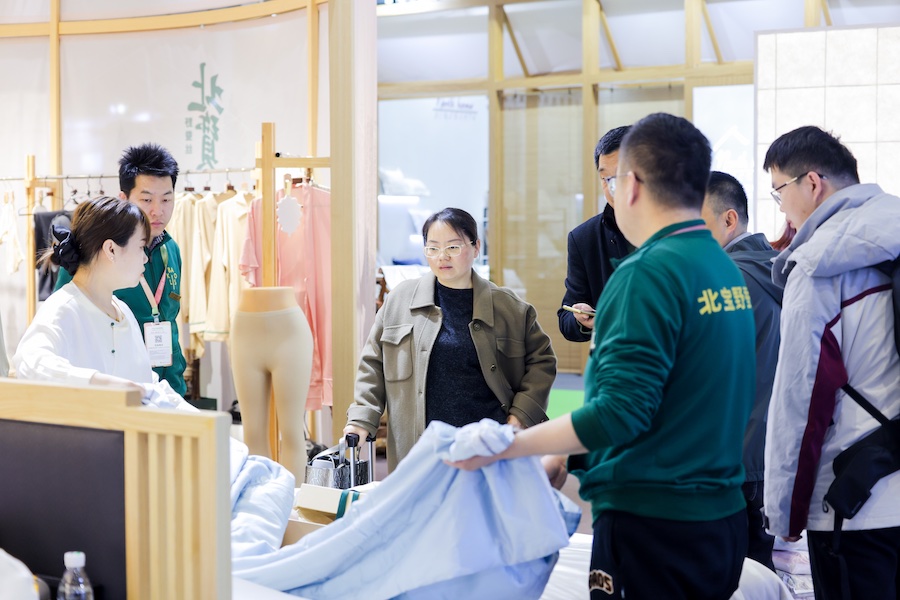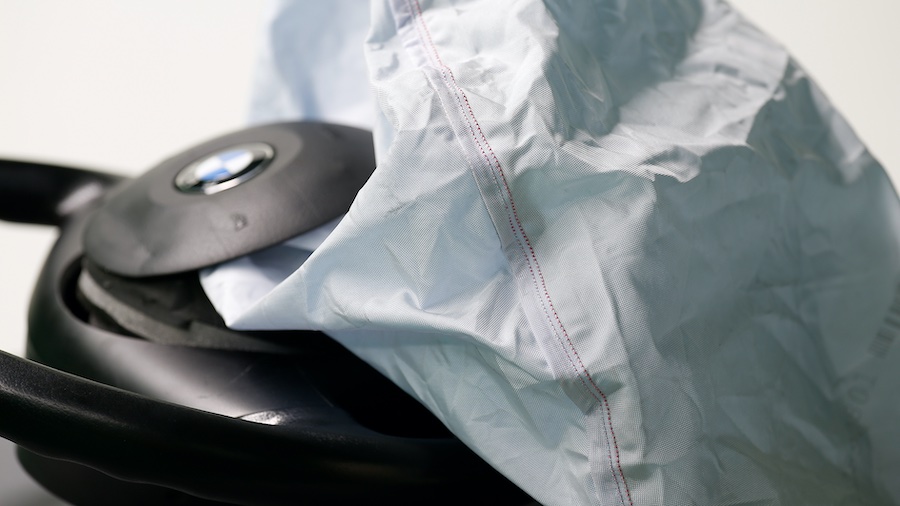#Yarn & Fiber
Marchi & Fildi Group presents the selection of metalloplastic yarns with GRS certification of its Gleaming line, coming from 100% post-consumer recycled polyester
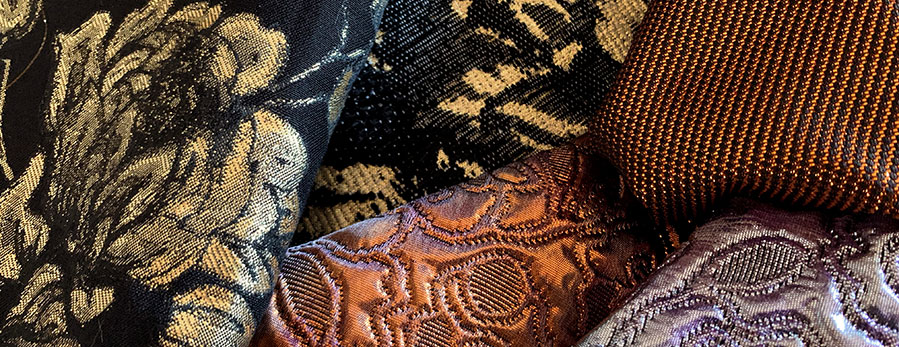
Starting from recycled polyester with traceable origin, in compliance with environmental and social criteria extended to all the phases of the supply chain, metalloplastic yarns are obtained with the same esthetic features and performance, compared to similar products based on virgin raw materials.
“Thanks to our commitment in the research of materials, we are able to propose metalloplastic yarns produced with 100% recycled material; the film used for the production of flat yarns, too, is in recycled polyester, with a quality level that is suitable for cutting – the Company explains -. Till now it was possible to find in the market only metalloplastic yarns with not recycled polyester flat yarn, twisted with certified fibers. This represents an important step forward to implement a circular economy possibility for this kind of products too”.
The Gleaming yarns GRS certified can be supplied in gold and silver, colors and transparent, in various counts, widths and types; they are suitable for use in flat and circular knitting, weaving, hosiery and as a component in fancy yarns.
The Gleaming line, with a wide selection of yarns in stock service, represents a completion of the offer of the Marchi & Fildi Group. The Gleaming yarns are offered in different thicknesses, widths and types with both metallized and transparent, iridescent, refracting and phosphorescent effects. The collection also includes items with special features of resistance to chemical and dyeing treatments.
The Gleaming metalloplastic yarns find application in the world of fashion and furniture, for creative and fancy yarns and fabrics, accessories and decorations.
Products with refractive features are also used in technical items like uniforms and workwear, sport garments and accessories, external ribbons and labels.
The Marchi & Fildi Group
Marchi & Fildi S.p.a was established in 2007 through the fusion of the mills Filatura Marchi and Fildi, owned by the Marchi and Dissegna families. Filidea is the youngest company within the Group, and was set up in 2008.
The Marchi & Fildi Group proposal for the fashion world consists of linear or circular knitting, weaving and hosiery. The distinguishing element in the collections is the focus on sustainability, which starts with the selection of the raw materials and finishes with the Ecotec® brand owned by Marchi & Fildi. The Filidea brand presents an assortment of natural, sustainable and certified yarns designed for the high-quality market sector. Filidea is also specialised in the production and development of technical yarns intended for protective and work clothing, for the automotive industry and various industrial uses.
The modern dyeing department and the pilot research and development facility allow the Group to create new yarns for the collections, alongside the collaboration with universities and research centres and with various partners for the development of specialised projects.
Today, with the entry of the third generation of entrepreneurs, Marchi & Fildi S.p.a is a group of mills which is known internationally and which has a constant rate of growth.
Ecotec® is the patented production process developed by Marchi & Fildi to create new yarns by upcycling the pre- and post-consumer cut-offs. The Ecotec® range ensures a reduced environmental footprint: up to 46.9% savings in terms of energy consumption, up to 46.6% reduction in terms of CO2 and up to 61.6% reduction in terms of water consumption along the whole supply chain.







